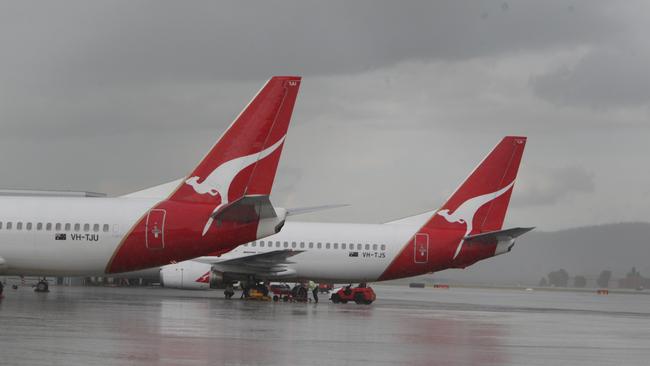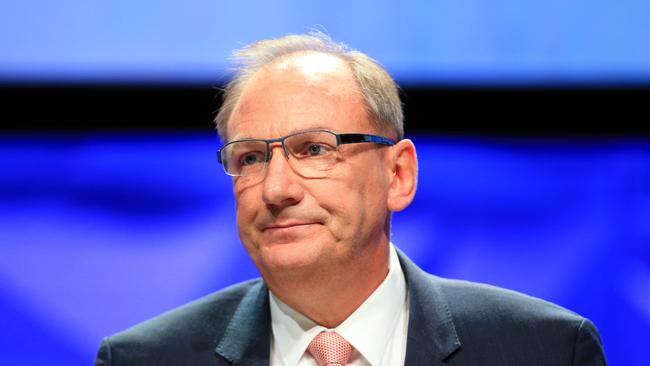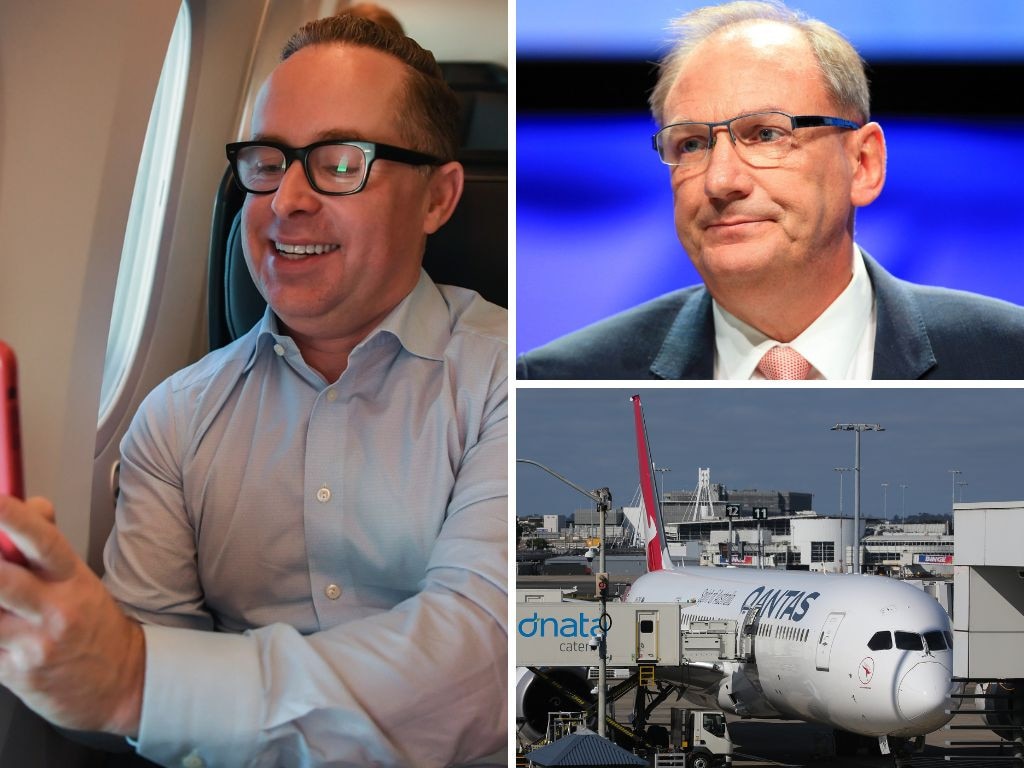Joyce’s $16m bonus: lessons for incoming Qantas chair
Prestige aside, John Mullen will have his work cut out as chairman of Qantas to show the airline is putting customers and staff ahead of CEO and executive pay packages.

Business
Don't miss out on the headlines from Business. Followed categories will be added to My News.
The possibility that former Qantas chief executive Qantas Alan Joyce will be entitled to another $16m-plus pay cheque from the airline shows boards need to look more closely at remuneration structures, investors say.
Qantas has hired high-profile consultant Colin Carter and law firm King & Wood Mallesons to review whether Mr Joyce, or any other of his executive committee, in any way breached the conditions of receiving their bonuses.
In Mr Joyce’s time at the nation’s biggest airline he stared down the unions, grounding flights rather than bowing to their demands, and kept the airline afloat during the border closures of the Covid pandemic.
But he then oversaw a litany of customer service failures, covering everything from flight delays to lost bags. The airline sold tickets on flights it had already cancelled, wouldn’t refund fares on flights that didn’t operate during Covid, made credit vouchers difficult to redeem and illegally fired staff.
The airline’s boardroom could take lessons from this outcome, Sandon Capital founder and managing director Gabriel Radzyminski said.
“For the Qantas board under Mullen, it might be time for them to consider any lessons they can learn from this when they review their remuneration practices,” Mr Radzyminski said.
Incoming chairman John Mullen will likely want to show the airline is now charting a different course.

Mr Joyce is fighting for his long-term bonuses of $13.97m plus a short-term bonus of $2.19m, with a small portion of these amounts dependent on financial measures this year and next.
The money comes on top of the $21.4m pay cheque already cut for Mr Joyce for his last year, taking his total tally at the airline to about $170m for 15 years in the captain’s seat, during a reign where he cut a quarter of Qantas staff including illegally firing 1700 baggage handlers.
Mr Radzyminski said asking now whether the remuneration is “too much” is not the right question for the airline’s board.
“’How much is too much?’ is the wrong question to ask,” Mr Radzyminski said. “It comes down to, what are the contractual obligations?”
Several investors speaking on background said they thought it was unlikely Mr Joyce had breached the contractual terms set by the board and would likely need to be paid all or a large part of his bonuses.
Generally speaking, matters of remuneration are highly subjective and different shareholders will have different opinions. A shareholder who has bought in at a low price will have a different view than one who has bought in at a higher price.
Other stakeholders, for example employees and customers, will also feel like they’re entitled to express opinions on remuneration, Mr Radzyminski said.
“Ultimately, it is a question for the board, who in turn are answerable to their shareholders. Boards need to think very carefully about what contractual obligations they enter into when negotiating with CEOs and executives.”
A report released last week showed that in Australia, CEO pay has risen 14 per cent, with the average fixed remuneration of an ASX 200 boss reaching $1.37m.
The report by McGuirk Management Consultants for the Governance Institute of Australia said general staff saw a 5 per cent rise during that time.
At Qantas, new CEO Vanessa Hudson is busy trying to clean up outstanding problems that occurred when she was chief financial officer and Mr Joyce was still in charge.
The airline last month agreed to pay $120m to settle a claim by the competition regulator over allegations it sold tickets on cancelled flights, with affected passengers to receive up to $450 in compensation.
Still to be tied up is Qantas’s sacking of its baggage handlers, with the court case that pitted Qantas against the Transport Workers Union now done and the court to rule as early as next week what compensation and fine the airline will have to pay for its illegal action.
Once this matter is completed, it’s likely the external review into Mr Joyce’s actions will be completed and the report handed to the board before the end of the financial year.
The issue of soaring CEO pay and the subjectivity of what is too much is a global issue.
When pharmaceutical giant AstraZeneca put forward a £18.7m pay proposal for CEO Pascal Soriot, two proxy firms called it “excessive”, while a major investor described the boss as “massively underpaid.” His package was approved.
Just last month, Boeing investors approved a US$32.8m package for outgoing CEO David Calhoun, despite shareholder fury about ongoing incidents following several tragic accidents.
More Coverage
Originally published as Joyce’s $16m bonus: lessons for incoming Qantas chair





